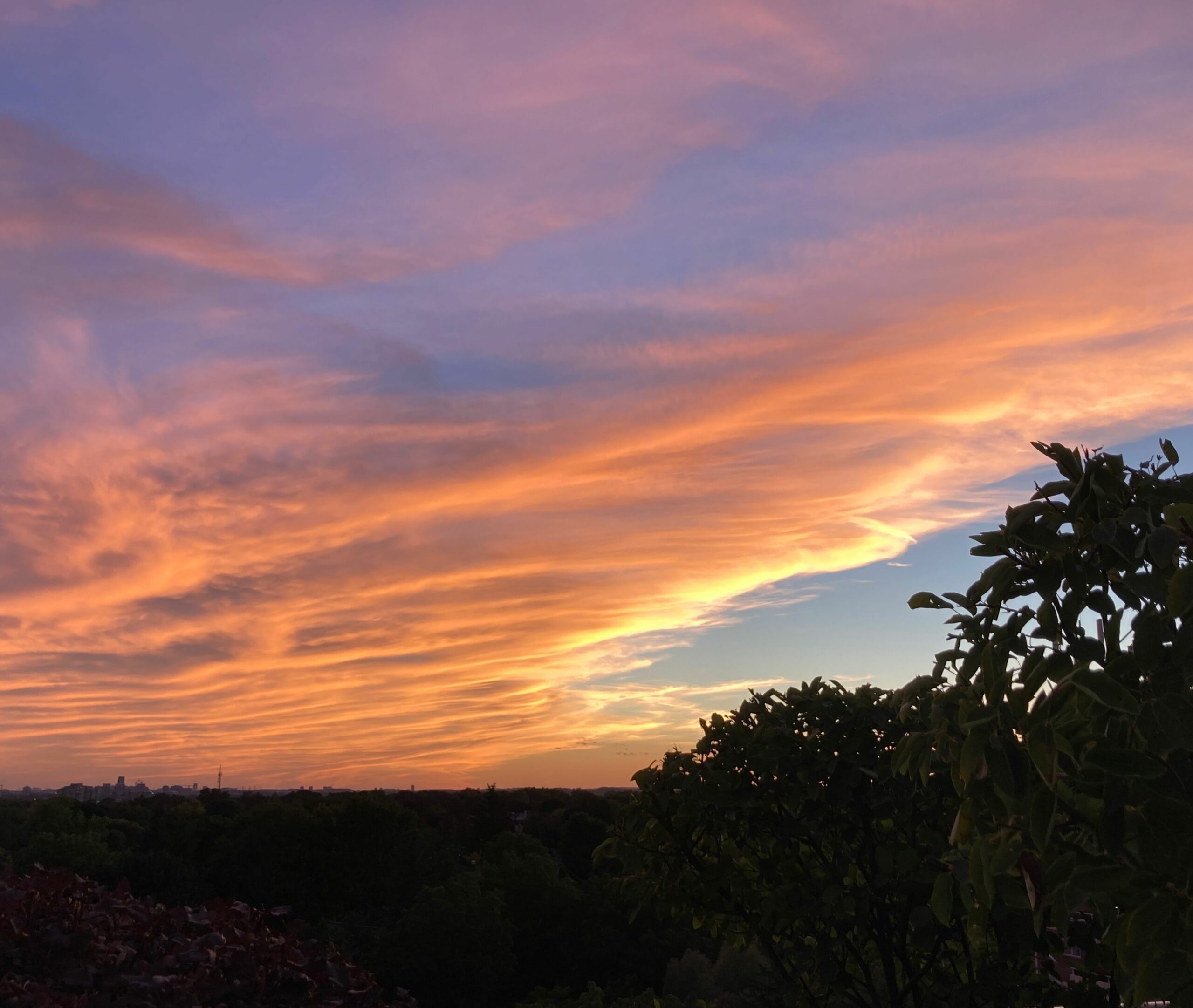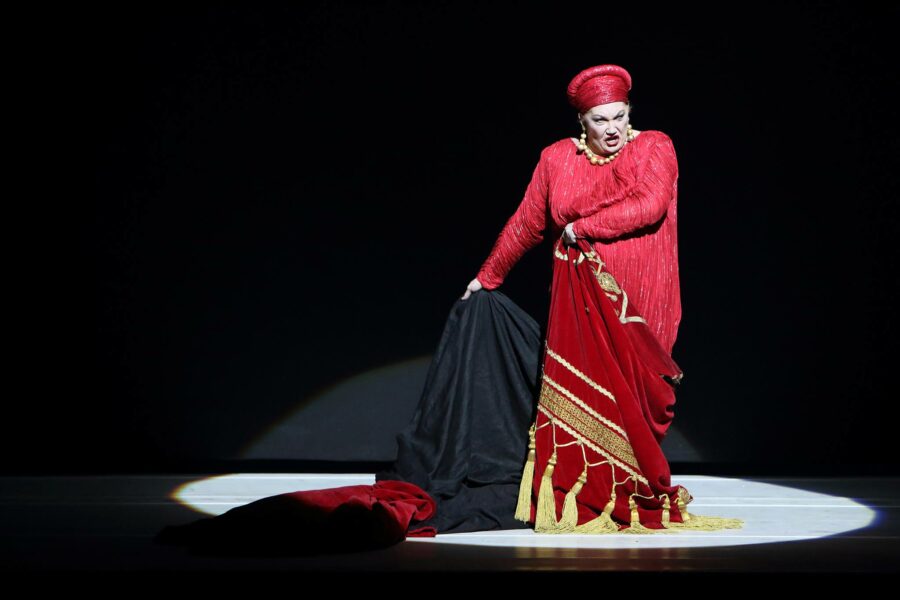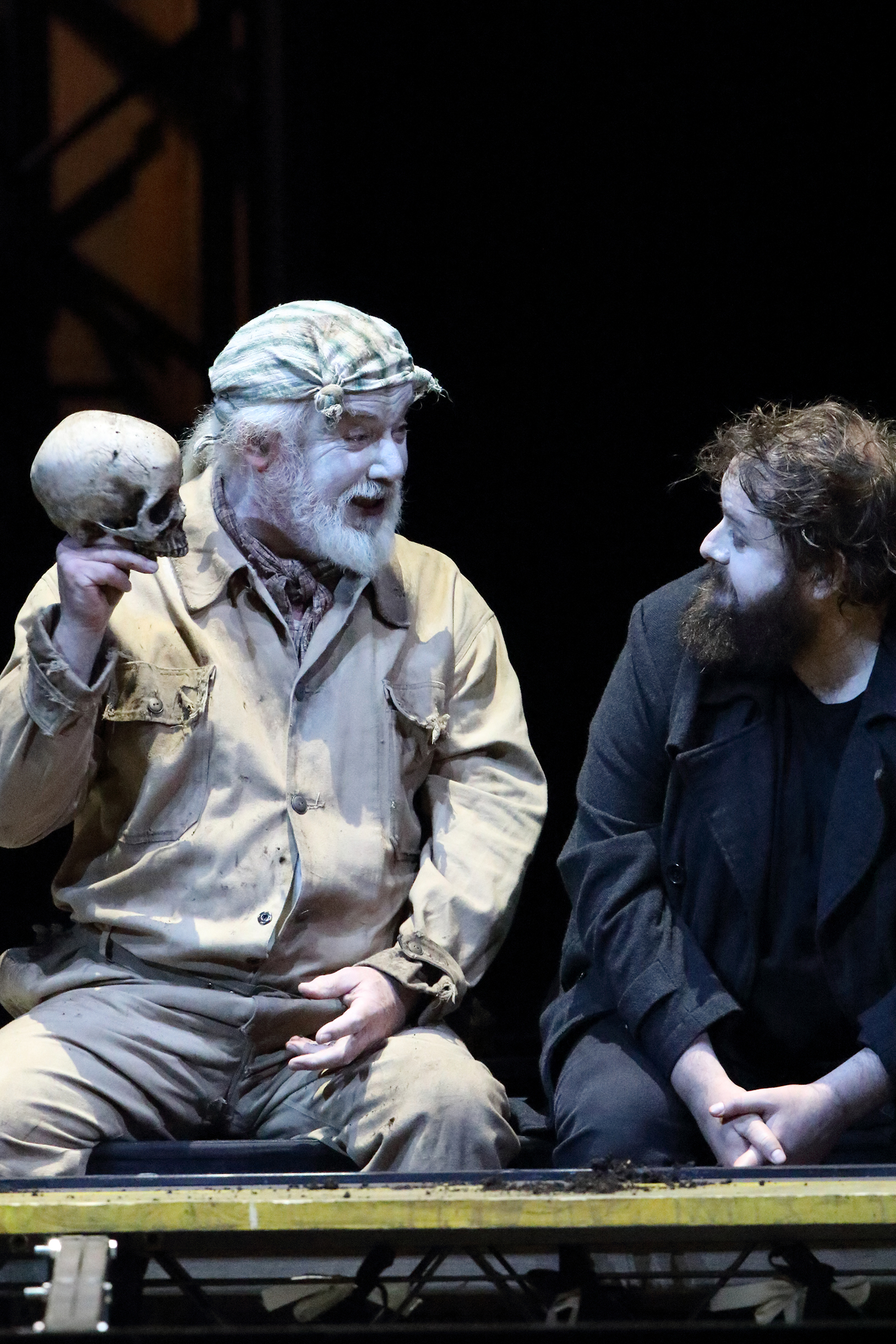September has arrived though, at least in my part of the world, related cooler temperatures have yet to appear. Still, there is a marked change when it comes to the formal end of summer holidays. The “most wonderful time of the year” for parents is also the big inhalation for those of us working in the education system; the feelings I remember as a child at this time (dread; excitement; anxiety) have, in adulthood, whittled down to something leaner if no less energetic (anticipation; impatience). The return of structure and its first cousin, predictability, are pluses, though they’re hardly immobile; schedules, due dates, and outlines bump against individual and collective needs, abilities, and personalities, as well they must. Being an Adjunct Professor means not so much juggling as knitting – in new patterns, constantly, never quite sure what you’re making or to what end, at least until the conclusion of term. Here’s hoping the blanket (or whatever it is) proves useful to more than a few.
September also marks the start of the arts season, a time when the choices announced many months ago are realized and suddenly take on harder, thicker edges. Programming and concomitant production are more interlinked than ever, but understanding that link is proving more and more difficult. Just weeks after American magazine Opera News announced its imminent closure, prestigious German classical publication Fono Forum sent a note to its contributors indicating its final edition will be in January 2024. As I wrote with regards to ON last month: I am not surprised, particularly given the current state of media, and arts-dedicated media in particular. Publishing is pricy, audiences are splintered; algorithms and related ROI lead many away from niche publishing and toward the sort of output that tends to clash with the things culture (at least some of it) might perhaps inspire: slowing down; abstract thought; careful evaluation. Finding people willing to pay to read things at all is the toughest task for media in the 21st century; finding people willing to pay for things which might further inspire such focus is even harder; finding people willing to pay for coverage of a very niche interest is triply difficult. Classical does not (for the most part) inspire sexy clicks; the question is, should it, and can it? Are there people who don’t mind? Can those who make faces afford to keep making faces? I do think there are, and will be, other means and methods; whether they will have any quick and sexy ROI is another matter. It’s going to take time and that thing Axl sang about; to quote Hamlet (again), ’tis true ’tis pity, and pity ’tis ’tis true.
In Berlin
Also true: Komische Oper Berlin (KOB) is opening its new season with a very coverage-worthy event. The company’s first production away from its usual Behrenstraße locale is being done with a big (possibly literal) splash. Hans Werner Henze’s oratorio Das Floß der Medusa is being staged in an old airport hangar at Templehof, with seating located around a huge body of water designed especially for the production. Director Tobias Kratzer, notable for his work at a range of houses, including Deutsche Oper Berlin, Bayreuth , and Opéra de Paris, here leads a cast featuring Gloria Rehm, Idunnu Münch, Günter Papendell, 83 musicians, and over 100 choristers, all under the baton of conductor Titus Engel.
The work is based on real history: the wreck of French naval ship Méduse ran off the coast of western African in 1816. While the ship’s captains saved themselves and escaped, over 150 others took to a raft, which they stayed on (or tried to stay on when they weren’t gouging each others’ eyes out or committing suicide) for thirteen days; only fifteen people would survive the disaster. Théodore Géricault famously depicted the wreck in his monumental painting a scant three years after the event, interviewing Méduse’s survivors and examining the flesh of cadavers as he worked. Henze’s 1968 oratorio is a kind of veiled (or not-so-veiled) political statement on the issues which sit foremost within the tragedy. Its premiere inspired clashes between protestors (some pro-communist; some anarchist), the RIAS choir, and police who had come to break up the scuffles; Ernst Schnabel, who wrote the text, was among those arrested. Henze revised the score in 1990, and the work has been presented, in concert and full production formats many times since. Its relevance, particularly for this time in history, is unmissable. As Opera Today’s Anne Ozorio wrote in her masterful review of a 2018 presentation by Dutch National Opera:
… Géricault was painting when the wreck of the Medusa was still raw political scandal. The rich had left the poor to die. What Géricault depicted was not lost on audiences at the time. The real horror is that modern audiences refuse to connect, even though we’re surrounded by images or war, destruction and refugees drowning at sea. Even if the press don’t know Henze, which is bad enough, surely some might have the humanity to think ?
The new KOB production was slated for five performances but a sixth was added out of sheer demand. Get thee to Templehof.
Also in Berlin
The European premiere of Chief Hijangua – A Namibian Opera in Four Acts by composer/conductor/baritone Eslon Hindundu takes place this month. The work features a libretto by Nikolaus Frei and will enjoy a semi-staged presentation by Rundfunk Sinfonieorchester Berlin (RSB). The multitalented Hindundu has performed and conducted in numerous events and festivals (including Swakopmunder Musikwoche, an annual music event held in Swakopmund, Namibia, and Germany’s annual autumn Immling Festival), and led the Namibian National Symphony Orchestra (as the organization’s Music Director) in the opera’s world premiere at the National Theatre of Namibia, Windhoek in 2022. The upcoming Berlin presentation will be directed by Kim Mira Meyer (who often works with Munich’s Gärtnerplatztheater) and will feature the vocal talents of Berlin-based Cantus Domus and Vox Vitae Musica (a choral group founded by Hindundu); the opera utilizes both German and Otjiherero, one of the languages spoken by Namibians. The work is a clear reference to Germany’s brutal colonization of Namibia in the late 19th-early 20th centuries, in which (according to a report from DW) roughly 100,000 people were killed and numerous atrocities committed. The opera itself tells a personal story, with its theme (the search for identity) sewn into its depiction detailing the quest of a young prince.
Chief Hijangua is being presented at a pivotal point within the classical world, as calls rise for greater social relevance in an art form frequently derided for being out of touch with real-world concerns and lived experiences. Opera warhorses (and related old productions) are frequently programmed now to get covid-scared audiences back into the auditorium; in places where government funding is scant, that is a reality that can’t be ignored. But as The Met itself noted, box office (at least in New York) is being made with precisely with, and not despite, new works. Maybe classical organizations need to be slightly braver with their choices? Maybe a little more trust in audiences would be a good thing? Might this be more than a mere trend? Perhaps Chief Hijangua will receive further productions in international venues? It seems the RSB, along with showcasing Hindundu’s considerable talents, is celebrating their 100th birthday with a powerful symbol of creativity whilst simultaneously throwing down a gauntlet to the greater opera world. Chief Hijuanga runs for three performances at Berlin’s Haus des Rundfunks, and is being done in partnership with Deutschlandfunk Kultur.
In London
History, literature, music, and theatre all mix at the Barbican Centre in London this month with King Stakh’s Wild Hunt. Based on the popular 1964 novel by Belarusian writer Uladzimir Karatkievich, the work mixes folk mythology and pointed social commentary related to ongoing political repression in Belarus. Co-director Nicolai Khalezin calls it a story that “combines mysticism and reality, love and hatred, nobility and cowardice, history and modernity.” The work is being presented by Belarus Free Theatre (BFT), an underground theatre group who were forced into exile in 2021, and who count actors Kim Cattrall and Jeremy Irons, rock musician David Gilmour, and playwright Tom stoppard among their supporters. King Stakh features a score by Olga Podgaiskaya, a composer and active member of Belarusian avant-garde chamber group Five-Storey Ensemble, who will be performing as part of the production.
Conductor Vitali Alekseenok, who leads the musical side, is currently Artistic Director of the annual Kharkiv Music Fest in Ukraine, and wrote about his experience there earlier this summer. In London he leads a troupe which will feature Ukrainian singers Andrei Bondarenko and Tamara Kalinkina, and is being helmed by co-founding BFT Artistic Directors Khalezin and Natalia Kaliada. The latter’s own father recorded the novel in 2009 for an audio book (portions of which will be used in the production). She notes that her father had urged her to stage the novel for years, “not just because it’s one of the greatest Belarusian novels of the last century, but because he deeply understood its relevance.” The work, she continues, “reminds us that the past is not dead, it’s here in Europe today”. Kaliada’s father is unfortunately no longer alive to see the fruits of his daughter’s labour, but its realization is a strong sign of hope, and needed ongoing resistance to Belarusian repressions. King Stakh has its world premiere at the Barbican and will run for four performances.
Remembering…
Loss seems like a subtext through many upcoming presentations, and indeed it felt much closer this weekend. On Saturday it was announced that Canadian architect Raymond Moriyama has passed away at the age of 93. The Japanese artist, who survived a horrendous wartime internment on the west coast of Canada, was responsible for many famous landmarks in the country, including the Canadian War Museum, the Japanese-Canadian Centre (now called the Noor Cultural Centre), Science North, the Ontario Science Centre, as well as the Canadian Embassy in Tokyo. In 2003 Moriyama was made a member of the Japanese Order of the Rising Sun (4th class), an award conferred in recognition of his services to Japanese culture in Canada. In 2009 he was the recipient of a Canadian Governor-General’s Award for Visual and Media Arts in 2009. The awards were just two of the numerous honors the architect collected during his lifetime. I’ve always found Moriyama’s work to be musical, possessing its own distinct resonance; as a child I used to visit the Scarborough Civic Centre and look up and around in awe.
Growing older I visited other locales (mentioned above), and would silently wonder at his use of texture, shape, light, and structure. He created a smart, daringly (for the time and place) spiritual balance of notable contrasts (rich/stark; old/new; dark/light), providing a full experience of form that reaches well past the visual. I hear Stravinsky’s 1930 work Symphony of Psalms whenever I look at his work now. This 2020 documentary by Ontario public broadcaster TVO clearly shows why Moriyama and his work will always be a treasure. (Note: some may need a VPN to view this, but it’s definitely worth it).
Finally: I learned of the untimely passing of Maxim Paster yesterday morning, and spend a good chunk of the day (and night) listening to and watching a range of performances by the Kharkiv-born tenor. His repertoire was immensely wide (Puccini; Tchaikovsky; Bizet; Berg; Prokofiev; Strauss –Richard and Johann; Rimsky-Korsakov; Donizetti; Verdi; Mussorgsky) but barely captured his talent. Making his Bolshoi debut in 2003, Paster would perform with many prestigious institutions indeed – Opéra de Paris, Bayerische Staatsoper, The Metropolitan Opera, Semperoper Dresden, Teatro Alla Scala, the Salzburg Festival. He was rightly famous for his Shuisky in Boris Godunov, performing in a variety productions on an assortment of stages, including the Bolshoi, Opéra Bastille (Paris), The Met, and Teatro Comunale (Bologna). Paster’s commitment to music possessed an innate humility; this was an artist who very clearly humbled himself before whatever was in front of him, placing his entire self into the service of the text and music, and of rendering them as one. In so doing he gave us something personal, not performative – emotional, not sentimental – thus making the music immediate and very real. Witness his care with the words of Sergei Yesenin in this 2019 performance of Rostislav Boyko’s “Moon Above The Window”:
That voice, flinty and flexible, went hand-in-hand with a deep theatrical understanding. Paster understood, so well, the large value of small gestures. A turn of a torso; a cock of a head; the lift of a hand; slow, deliberate inhalations and exhalations, visible for all to see – such combinations, when done with such elegant economy as what Paster employed, quietly opened doors of perception and understanding, and made one hungry for more. There are very few artists who are so knowing in their creative choices, and whose vocal expression is so utterly attuned with a composer’s imagination – and that of an audience. Paster embodied an artistic authenticity as rare as it is remarkable. He died at the age of 47, still with so much left to offer to music, art, the world.
News of Paster’s passing made for a grim start to September, a month of change, and perhaps some needed reflection on that imminent change. “One hasn’t got time for the waiting game,” to quote Weill’s famous song, with words by Maxwell Anderson. “September Song”, interestingly, made its entry into the world on September 26, 1938 as part of the trial run of the musical Knickerbocker Holiday in Hartford, Connecticut. The “waiting game” need only be played out a few more days before my much-promised feature interview with BSO Recordings Managing Director Guido Gärtner is published. Until then, watch, listen, read, attend… think, rethink, evaluate… slowly.




